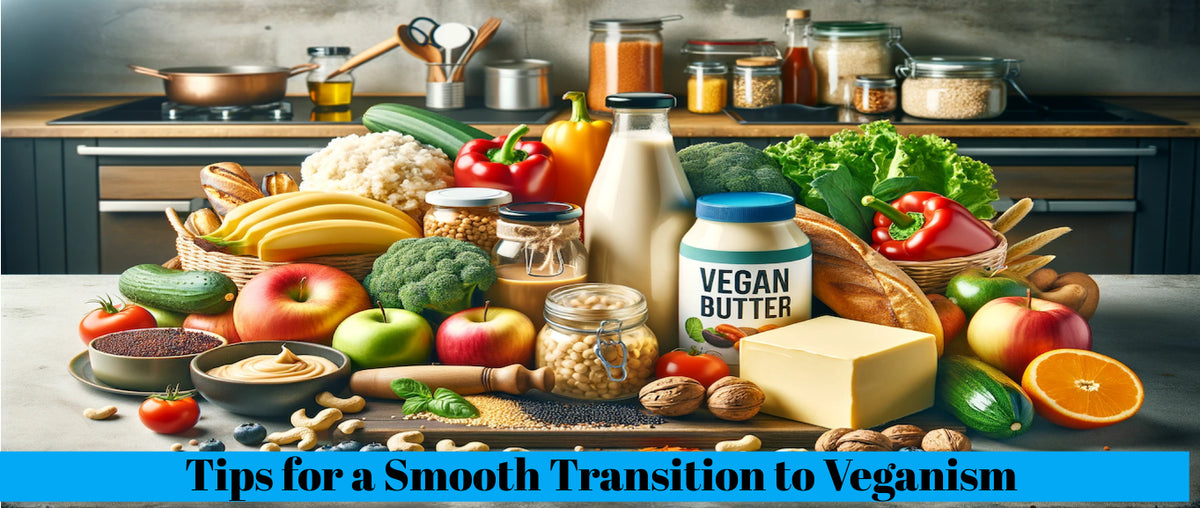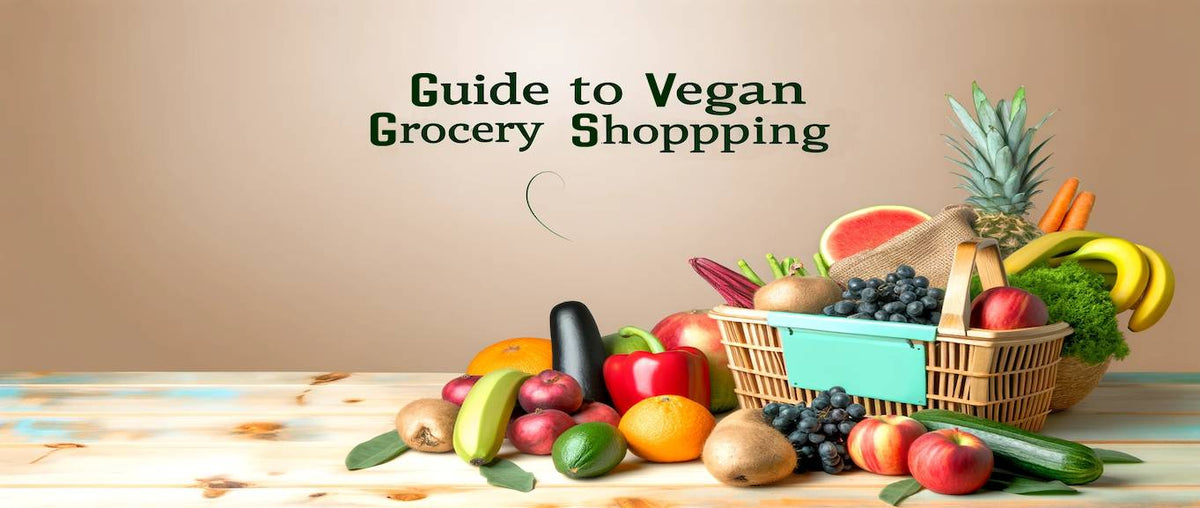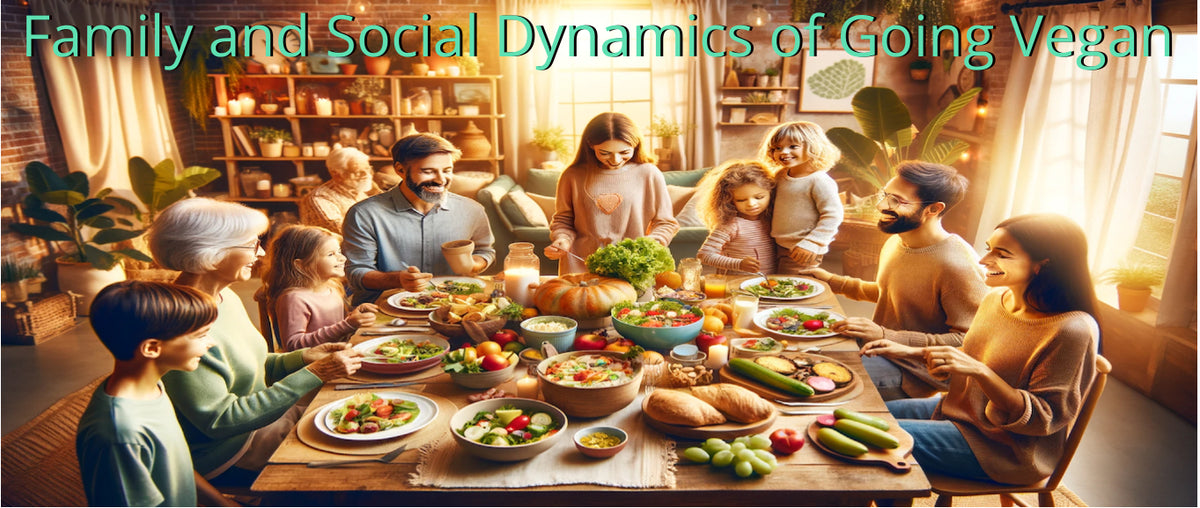Master Veganism: Tips for a Smooth & Easy Transition
Veganism is more than a dietary choice; it's a commitment to a lifestyle that excludes the use of animal products for food, clothing, and other purposes. Adopting a vegan diet offers numerous advantages, from health benefits such as reduced risks of heart disease, diabetes, and certain cancers, to ethical and environmental improvements by reducing animal exploitation and lowering our carbon footprint. This guide provides insights and practical advice for those interested in transitioning to Veganism, focusing on how to successfully adopt and maintain a vegan diet while enjoying the array of benefits it brings. Whether your motivation is health-related, ethical, or environmental, embracing a vegan diet is a powerful step towards a more sustainable and compassionate way of living.
Key Takeaways
- Gradual Transition: Start with incorporating one vegan meal a day and gradually increase the frequency.
- Exploring Vegan Alternatives: Try plant-based meats and dairy-free options like almond, soy, and oat milk.
- Nutritional Considerations: Focus on essential nutrients; supplements may be necessary for nutrients like B12 and omega-3.
- Meal Planning: Create a weekly meal plan with a variety of plant-based foods.
- Reading Food Labels: Learn to identify non-vegan ingredients and efficiently read labels.
- Maintaining Familiar Flavors: Veganize favorite meals and explore new vegan cuisines.
- Overcoming Challenges: Navigate social situations and address common misconceptions about veganism.
- Continuous Learning: Stay informed about vegan nutrition and ethical discussions.
- Flexibility: Be adaptable in situations where vegan options are limited.
The Benefits of Going Vegan
Health Advantages
Adopting a vegan lifestyle leads to various health improvements. Studies show that vegan diets are effective in reducing the risk of heart disease, aiding in weight management, and stabilizing blood sugar levels. Consuming plant based foods rich in fiber, vitamins, and minerals contribute to these health benefits. Moreover, cholesterol free foods typically found in vegan diets support cardiovascular health.
Environmental Impact
Veganism significantly reduces environmental impacts. By avoiding animal products, one helps lower greenhouse gas emissions, conserve water, and reduce deforestation. The production of plant based products like Vegan Cheese and vegan butter typically requires fewer resources compared to their animal-based counterparts, making them more sustainable.
Ethical Considerations
Choosing veganism also aligns with ethical practices concerning animal welfare. This lifestyle rejects the commodification of animals, highlighting the importance of compassion and respect towards all living beings.
Preparing for the Transition
Research and Resources
Thorough research is vital for a smooth transition. Informative platforms like Vegan Society and documentaries provide insights into vegan living. Understanding the nutritional aspects and environmental benefits of veganism helps in making informed decisions.
Community Support
Community support is invaluable. Engaging with online vegan forums and local groups offers encouragement and practical advice. These communities often share experiences with Vegan products like Cashew Butter, vegan mayo, and Fat Free Butter, which can be helpful for beginners.

Gradual Transition: Step by Step
Starting Small
Begin by introducing vegan meals gradually. Incorporate plant based foods into your daily diet, and slowly increase their frequency. This gradual shift allows for a comfortable adjustment to new flavors and meal preparation methods.
Reduction Strategy
Reducing meat and dairy consumption in stages can be effective. Start by eliminating products that are easier to let go of, and progressively move towards more challenging items. This approach helps in adapting taste preferences and minimizes cravings.
Finding and Enjoying Vegan Alternatives
Meat Substitutes
Explore a variety of plant-based meats like tempeh, seitan, and mock meats. These products can closely mimic the texture and flavor of traditional meats, aiding in the transition for those used to a meat-heavy diet.
Dairy-Free Options
Discover the wide range of dairy-free alternatives available. Almond, soy, and oat milk are excellent substitutes for dairy milk. Vegan cheese options made from nuts and soy provide a similar experience to traditional cheese without animal products. Vegan butter and vegan mayo are also readily available, offering the same richness as their dairy-based counterparts.
Nutritional Considerations in a Vegan Diet
Essential Nutrients
A well-planned vegan diet should focus on essential nutrients. Protein can be obtained from beans, lentils, and tofu. Iron is abundant in leafy greens and legumes, while calcium can be found in fortified plant based foods and green vegetables. Vitamin B12, vital for nerve function and blood formation, is often supplemented in a vegan diet. Cholesterol free foods like grains, fruits, and vegetables also play a key role in maintaining overall health.
Supplementation
Supplements are sometimes necessary, particularly for nutrients like B12, D, and omega-3 fatty acids. Consulting with a healthcare provider can help determine if supplements are needed based on individual dietary intake and health needs.
Meal Planning and Preparation
Weekly Meal Plans
Creating a weekly meal plan ensures a balanced intake of nutrients. Incorporate a variety of plant based foods into your meals, including whole grains, fruits, vegetables, and proteins like lentils and tofu. Planning helps in maintaining a nutritionally adequate diet and reduces the likelihood of reverting to non-vegan options.
Cooking Tips
Beginners can start with simple recipes that require minimal ingredients. Online resources and cookbooks offer a plethora of vegan recipes ranging from quick snacks to elaborate dinners. Exploring vegan cooking can be a delightful experience, especially when experimenting with vegan food products like Cashew butter or vegan mayo.
Also Read
Reading and Understanding Food Labels
Identifying Non-Vegan Ingredients
Reading labels is crucial in a vegan lifestyle. Look out for hidden animal-derived ingredients in packaged foods. Ingredients like gelatin, casein, and certain E-numbers are animal-derived and should be avoided. Familiarizing oneself with these components is essential for maintaining a strict vegan diet.
Tips for Efficient Label Reading
Understanding food labeling can be overwhelming at first, but with practice, it becomes easier. Always check the ingredient list and be cautious of terms that might indicate animal derivatives. Many products now also feature vegan labels, making it easier to identify suitable options.
Maintaining Familiar Flavors and Dishes
Veganizing Favorite Meals
Many traditional dishes can be easily veganized using plant-based substitutes. For instance, using plant based cheese in pizzas or pastas can replicate the experience of their non-vegan counterparts. Exploring recipes that use fat-free butter or vegan butter in baking can also provide familiar flavors.
Discovering New Vegan Cuisines
Veganism opens up a world of culinary possibilities. Many international cuisines naturally lean towards plant-based eating, offering a variety of flavors and dishes to explore. This culinary diversity makes the vegan diet far from monotonous.

Overcoming Challenges and Common Misconceptions
Dealing with Social Situations
Navigating social situations as a vegan can be challenging. When dining out, look for restaurants with vegan options or request modifications to dishes. Be prepared to explain your dietary choices in social gatherings, and consider bringing your own vegan dish to share.
Addressing Myths About Veganism
Common misconceptions about veganism, such as protein deficiency, can be dispelled with factual information. A well-planned vegan diet can provide all necessary nutrients. Highlighting the variety and richness of vegan food products can also help in changing perceptions about vegan diets being restrictive.
Learning and Growing on Your Vegan Journey
Staying Informed
Continuous learning is key to a sustainable vegan lifestyle. Stay updated on the latest vegan nutrition research and ethical discussions. Resources like blogs, podcasts, and documentaries can provide ongoing education and inspiration.
Adaptation and Flexibility
Being adaptable and flexible is important, especially when traveling or in situations where vegan options are limited. Focus on making the best choices available and maintaining a compassionate and understanding attitude towards yourself and others.
Conclusion
In conclusion, transitioning to a vegan lifestyle is a journey of discovery, learning, and growth. By gradually incorporating plant-based foods, exploring vegan products like vegan cheese and vegan mayo, and staying informed, the transition can be both enjoyable and fulfilling. Remember, each step towards veganism is a positive move for health, the environment, and animal welfare.
Craving a delicious vegan meal? Look no further! We've got a guide to the best vegan restaurants in India, ready to help you discover amazing plant-based eats in your city.










